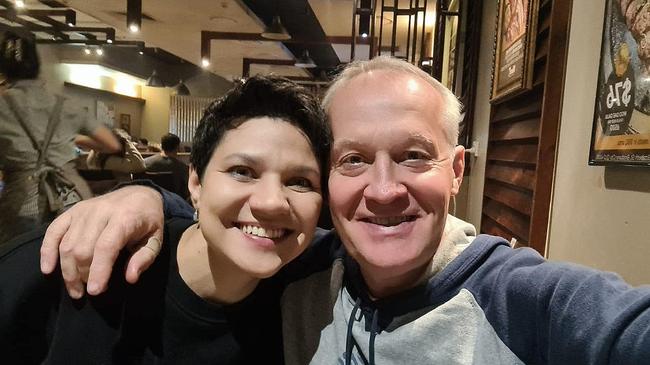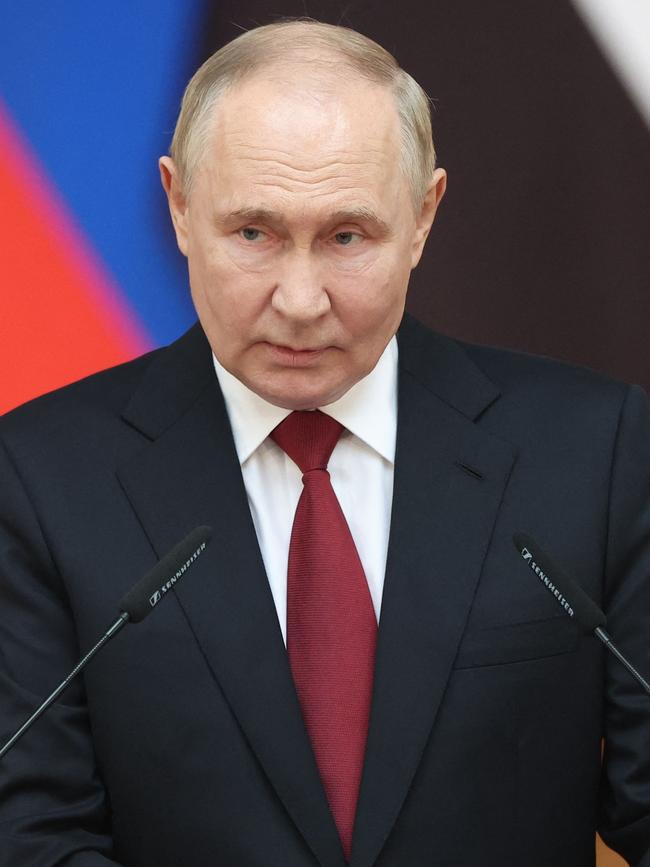
But we’re not talking Hollywood here. We’re talking about Russian espionage in the real world. And, in that regard, it’s worth registering several things.
Soviet espionage in Australia was entrenched during the 1930s and led to a situation in which KGB spies were embedded in the offices of the Chifley government’s Minister for External Affairs (H.V. Evatt) and Secretary for External Affairs (John Burton) in the late 1940s. The VENONA program for intercepting Soviet diplomatic and intelligence cables was set up, in the US, in 1943. By 1947-48 it had shown hundreds of Soviet agents were burrowed into Western governments, including at least 10 in the Klod Group in Australia. “Klod” was the Russian codename for Walter Seddon Clayton, who ran the ring in Australia for the KGB. That’s point one.
Point two is that the defection in Australia of KGB agent Vladimir Petrov and his wife Evdokia, in 1954, and publication of their book Empire of Fear, in 1956, coincided with the crisis inside the ALP which led to its internal split in 1955, that would keep it out of government until 1972. Empire of Fear was one of a genre, going back to the 1920s, detailing the truly awful nature of the Bolshevik regime.
The Coalition won the 1954 election and prime minister R.G. Menzies convened a royal commission on espionage. Evatt appeared before it and behaved in such a fashion as to be excluded from its ongoing hearings. He then famously made a fool of himself in parliament by declaring that he had written to Vyacheslav Molotov, Stalin’s point man on foreign affairs, asking him whether there were any Russian spies in Australia and had been assured there were not.
Decades after the Petrov defection, new KGB moles were recruited in Australia, as well as GRU (Soviet military intelligence) assets who have never been exposed. The recent unmasking of the KGB station chief in Canberra during the 1970s Gerontiy Lazovik’s mole in ASIO fails to address the admission by both the official historians of ASIO and its one-time director general, the late David Irvine, that there had been “a handful” of Soviet moles in ASIO. One might wave away a lot of this as old hat and even argue that the Cold War struggle was between enemies who all got up to dark activities. My own doctorate 40 years ago probed the darker side of anti-communist counterinsurgency during the Cold War.
But when someone like the Korolevs spies for Russia in the 2020s, there cannot be even a pretence that they labour in some notionally idealistic cause. There is nothing remotely idealistic about Putin’s regime or its intelligence services. The regime is a kleptocracy – a den of thieves – and its secret services a mafia. Heidi Blake’s From Russia With Blood: Putin’s Ruthless Killing Campaign and Secret War on the West (2019) is one way into all this, if you have the stomach for it.

If they were working for such forces, the Korolevs were, in the parlance of Star Wars, decidedly going over to “the dark side of the Force”. What’s not clear is why seemingly minor league operatives like them have been rounded up, when between cybercrime, influence operations and political subversion, Putin’s Russia has been relentlessly aggressive against this country and other Western democracies. As with the endless “war on drugs”, one wonders, where are the big fish?
Mike Burgess, at ASIO, and Reece Kershaw, at the AFP, have made portentous statements about how watchful and determined our security services are. Yet there seems to be a poor correlation between their ominous statements and the Korolev case. There’s an old problem in counterintelligence. If you disclose what you really know and how you know it, the dark forces are all ears, while the public is mostly inattentive.
Don’t misread the signals. Almost all arrests in espionage matters are discrete moves on the intelligence chessboard. We are in a deadly serious geopolitical contest and the other side is more dangerous now than at the height of the Cold War.
Paul Monk is a former senior intelligence analyst and the author of a dozen books. In 2023 he was officially sanctioned by the Kremlin for his critical writings on Putin and the invasion of Ukraine.






The arrest of Kira and Igor Korolev on charges of attempted espionage triggers all sorts of associations. Given that they were Australian citizens, living quietly as a suburban couple in Brisbane, one thinks inevitably of the clandestine exploits in TV and Hollywood movies. The Korolevs are small beer by comparison. They don’t appear to have even got away with what police allege is their first intelligence heist.